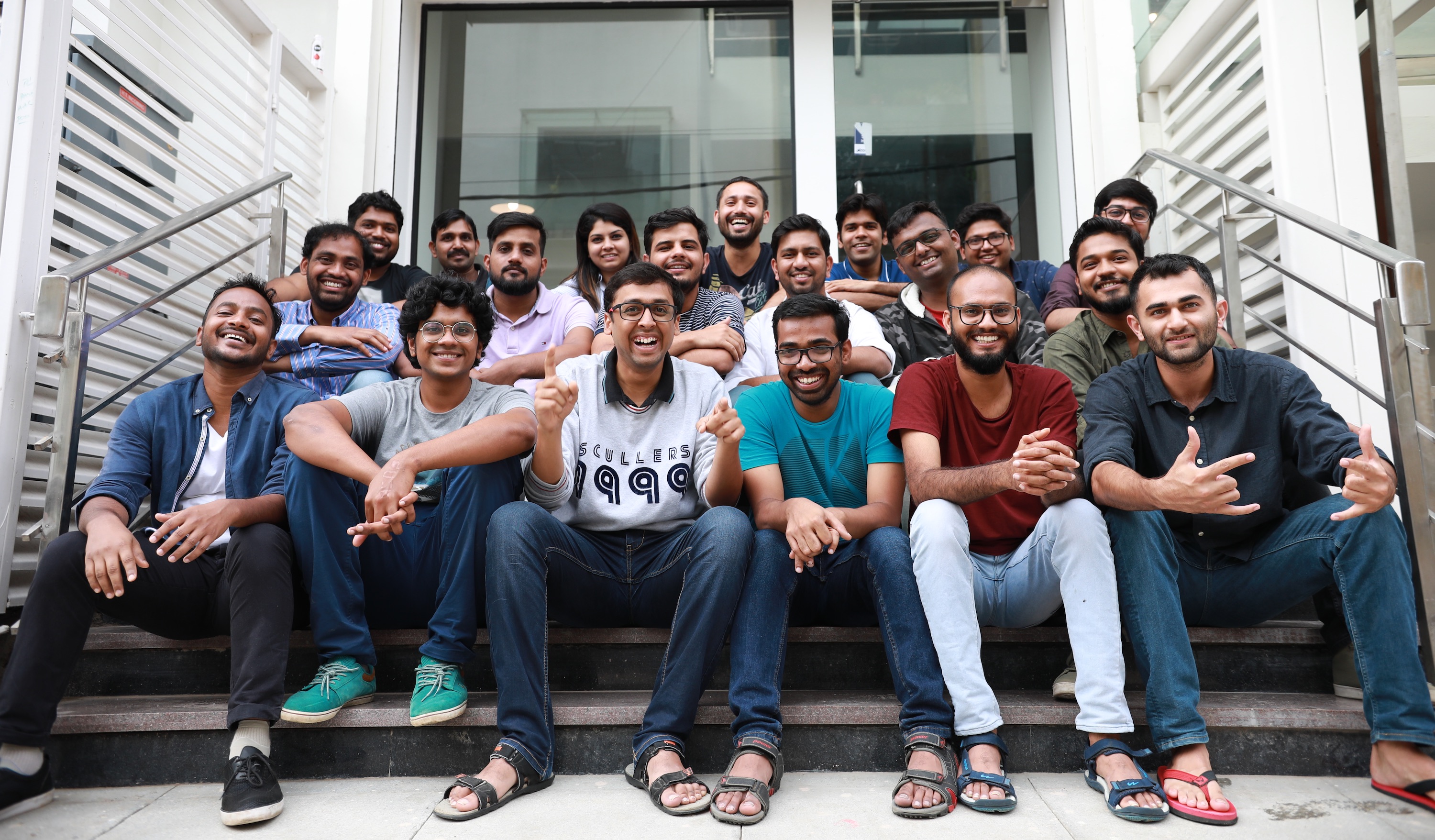Khatabook raises $25M to help businesses in India record financial transactions digitally and accept online payments
Even as tens of millions of Indians have come online for the first time in recent years, most businesses in the nation remain offline. They continue to rely on long notebooks to keep a log of their financial transactions. A nine-month old startup that is digitizing the bookkeeping and allowing merchants to accept online payments just raised a significant amount of capital.
Khatabook, a Bangalore-based startup, said on Tuesday it has raised $25 million in a new financing round. The Series A round for the startup was funded by GGV Capital, Partners of DST Global, RTP Ventures, Sequoia India, Tencent, and Y Combinator. A clutch of high-profile angel investors including Amrish Rau, Anand Chandrasekharan, Deep Nishar, Gokul Rajaram, Jitendra Gupta, Kunal Bahl, and Kunal Shah also participated in the round. The startup has raised $29 million to date.
Khatabook operates an eponymous Android app that allows small and medium businesses to keep a log of their financial transactions and accept payments online. The app, which was launched on Google Play Store in December last year, has amassed 5 million merchants from more than 3,000 cities, towns, and villages in India, Ravish Naresh, cofounder and CEO of Khatabook, told TechCrunch in an interview this week.
The app, which does not charge merchants, was used to process transactions worth more than $3 billion in August, said Naresh. Most merchants in developing markets are currently not online. They continue to rely on logging their financial transactions — credit, for instance — on notebooks and pieces of paper. As you can imagine, this methodology is not structured.

Even as Reliance Jio, a telecom operator launched by India’s richest man Mukesh Ambani, upended the Indian market and brought tens of millions of Indians online for the first time in last three years, most businesses in the country are still carrying out their operations without the use of any technology, said Naresh. “Could we build an app that makes it very easy for merchants to digitize their bookkeeping?” he said.
“As soon as we launched the app, we instantly started to go viral,” he said. “These shop keepers and roadside vendors have an internet-enabled smartphone, they are just not using it in their businesses. All they needed was a simple-to-use app.”
For several months now, the startup has been seeing 20% growth each month, he said. In six months, the app has helped businesses recover $5 billion in previously unpaid credits, Naresh claimed. Without any marketing, the app has also gained a significant number of users in Nepal, Pakistan, and Bangladesh, said Naresh.
“At Khatabook, we have taken early but significant steps towards leveraging this trend to digitize India’s shopkeepers. For most of our merchants, we are the first business software they’ve used in their entire life. And we will continue to build more India-first innovations to further enable the growth of what is still a largely untapped sector,” he said.
In a statement, Hans Tung, Managing Partner of GGV Capital, said, “as a global investor, we seek out founders who understand the local market and respond to growth opportunities with speed and agility – we certainly see this with the Khatabook team.”
Naresh, a cofounder of property startup Housing, said Khatabook will use the capital to build new features such as billing and invoicing to serve merchants. In next 12 months, Khatabook aims to add 25 million businesses, he said.
A growing number of startups in India are attempting to help businesses. OkCredit, which raised $67 million last month, serves 5 million merchants. IndiaMART, a 23-year-old B2B firm that went public this year, led a round in a startup called Vyapar last month that is addressing similar problems.
from TechCrunch https://ift.tt/2o1EIHY
via Technology
Comments
Post a Comment